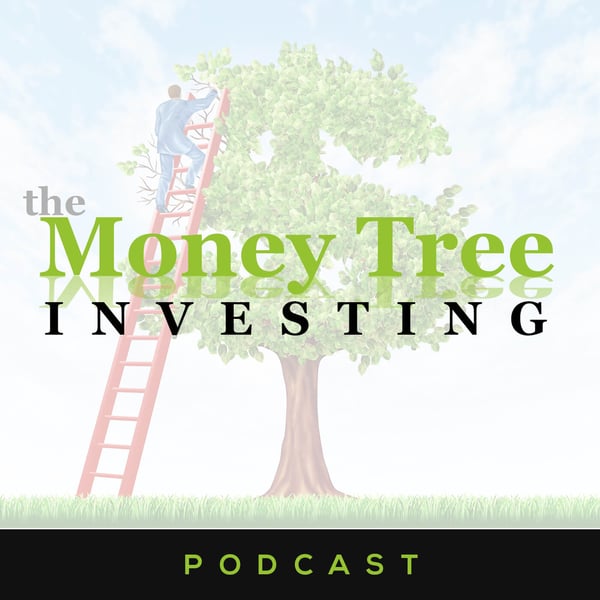Decoding ISOs, RSUs, and NSOs… Oh My!
Money Tree Investing
Money Tree Investing Podcast
4.6 • 658 Ratings
🗓️ 4 October 2024
⏱️ 65 minutes
🧾️ Download transcript
Summary
Josh Radman joins us today to discuss a little discussed topic on Money Tree Podcast: Decoding RSU, ISO and NQ SOs. He also shares how government programs and how they impact our labor market. He shares an example from local Broogers, which struggled to find staff and often received resumes from unemployable candidates. Josh also touches on how employment data has been revised to show many jobs are part-time or within the government, driven by new regulations. Shifting gears, Josh explores the idea that large AI models, like ChatGPT, might be throttled to prevent them from predicting the future, potentially disrupting markets. He also highlights the critical need for clean, reliable data for AI to function properly, as current government data is often inaccurate or manipulated.
Today we discuss...
- Josh Radman shares his background, from General Mills to tech companies like Walmart e-commerce, where he encountered confusion around equity compensation.
- How his frustration with understanding ISOs, RSUs, and NSOs led him to found Presidio Advisors, a firm focused on helping millennials with equity compensation.
- He emphasizes the importance of balancing tax considerations with investment risk and prioritizing financial goals.
- Radman discusses regret minimization as a tool for decision-making, helping clients navigate the risks of equity compensation.
- Companies often fail to educate employees about equity compensation due to legal concerns, leaving employees to navigate complex tax and financial decisions.
- The complexity of ISOs, NSOs, and RSUs requires advanced planning and understanding, especially when managing liquidity events like IPOs.
- How long-term capital gains tax rates are preferable (0%, 15%, or 20%) compared to ordinary income tax rates (up to 37%).
- Employees often face a limited post-termination exercise period (typically three months) to exercise stock options after leaving a company.
- It’s important to assess short-term, mid-term, and long-term cash needs when considering exercising stock options.
- Restricted Stock Units (RSUs) are taxed as ordinary income upon vesting without requiring cash outlay to exercise.
- A common misconception is that you must hold RSUs for a year to achieve optimal tax treatment; this is not necessary.
- Employees often underestimate total exposure to their company’s stock due to both explicit and implicit risks.
- Cognitive biases, such as the endowment effect, can lead individuals to overvalue their RSUs and resist selling.
- Market returns are skewed, with a small number of companies generating significant returns; diversification is essential to mitigate risk.
For more information, visit the show notes at https://moneytreepodcast.com/decoding-rsu-iso-nqso-josh-radman-648
Today's Panelists:
- Kirk Chisholm | Innovative Wealth
- Barbara Friedberg | Barbara Friedberg Personal Finance
Follow on Facebook: https://www.facebook.com/moneytreepodcast
Follow LinkedIn: https://www.linkedin.com/showcase/money-tree-investing-podcast
Follow on Twitter/X: https://x.com/MTIPodcast
Transcript
Click on a timestamp to play from that location
| 0:00.0 | Welcome to the Money Tree Investing Podcast. |
| 0:04.8 | Stock market, wealth, personal finance, value stocks, invest in your life. |
| 0:11.2 | Hello, the Smart Money Tree podcast listeners. |
| 0:13.0 | Welcome to this week's show. |
| 0:14.0 | My name's Kirk Chisholm. |
| 0:14.9 | I'll be your host. |
| 0:15.7 | And today I'm joined with Josh Redmond. |
| 0:18.0 | How are you doing, Josh? |
| 0:19.1 | You're doing well. |
| 0:19.6 | Thanks for having, Kirk. |
| 0:20.6 | Good. We wanted to bring Josh on because there's a topic we haven't talked much about, |
| 0:24.7 | but we got so many questions about this. That would be really important to bring them on. |
| 0:28.5 | Josh, tell us a little bit about your background. |
| 0:31.1 | A little bit of an atypical background, but I started actually consumer products. |
| 0:35.6 | So I started my career at General Mills. I was there for a little bit of time. |
| 0:39.8 | Actually, ended up meeting my wife there, which is probably not what you care to hear about on the show. |
| 0:44.4 | But that's what it is. Went to business school at Harvard, which I think is in your neck of the woods, and then found myself at a couple of tech companies, Walmart, e-commerce, so probably like one of the biggest, and then |
| 0:55.2 | a series B tech company. It was at these tech companies where I started to get different types |
| 1:02.7 | of equity grants, so RSUs and ISOs and all these different things. And honestly, it was super |
| 1:10.0 | confusing. And it was really frustrated. |
| 1:12.8 | It lit a fire underneath me because I have a lot of really smart, mathy, financing friends. |
| 1:19.2 | Nobody could tell me how to strategize around my ISOs. Nobody could tell me kind of when I should |
... |
Please login to see the full transcript.
Disclaimer: The podcast and artwork embedded on this page are from Money Tree Investing Podcast, and are the property of its owner and not affiliated with or endorsed by Tapesearch.
Generated transcripts are the property of Money Tree Investing Podcast and are distributed freely under the Fair Use doctrine. Transcripts generated by Tapesearch are not guaranteed to be accurate.
Copyright © Tapesearch 2025.

